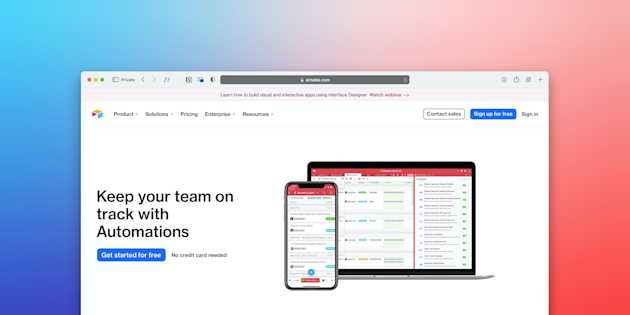Orbiting ideas
Tech
The Rise of No-Code Platforms: Implications for Software Engineers
Discover how no-code platforms are changing software engineering in this informative blog post. Learn about new opportunities and shifts in focus.
By Adam Peña

Are you a software engineer looking to stay ahead of the game? If so, you may have heard of no-code platforms. No-code platforms are software tools that allow non-technical users to build applications without writing a single line of code. With the rise of no-code platforms, software engineers are wondering what this means for their profession. In this blog post, we’ll explore the no-code revolution and how it’s changing software engineering.

What are No-Code Platforms?
No-code platforms are designed to empower non-technical users to create software applications without writing any code. These platforms provide an intuitive drag-and-drop interface that allows users to create and customize their applications using pre-built blocks of functionality. No-code platforms can be used to create everything from simple websites to complex enterprise applications.

Why the Rise of No-Code Platforms?
The rise of no-code platforms can be attributed to a few key factors:
1. Demand for Custom Software: With the growing need for businesses to create custom software, there is a need for tools that enable non-technical users to build applications.
2. Shortage of Skilled Developers: Despite a shift toward a more competitive tech industry for software industry due to layoffs, there remains a shortage of skilled developers in the market, which makes it challenging for businesses to find developers to build their applications.
3. Democratization of Technology: No-code platforms are democratizing the process of software development, enabling non-technical users to build software applications.
How No-Code Platforms are Changing Software Engineering
No-code platforms are changing the software engineering profession in a few ways:
1. New Opportunities: No-code platforms are creating new opportunities for software engineers to become experts in these platforms and provide consulting services to businesses that use them.
2. Shift in Focus: With no-code platforms taking care of the low-level programming tasks, software engineers can focus on high-level tasks such as architecture, design, and optimization.
3. Collaboration with Non-Technical Teams: Software engineers can collaborate more closely with non-technical teams to create software applications that meet their needs. This collaboration can lead to more efficient development cycles and better software applications.

No-Code Platforms and the Future of Software Engineering
No-code platforms are here to stay and they are going to continue to change the software engineering profession. As no-code platforms become more powerful and sophisticated, they will enable non-technical users to build more complex software applications. This means that software engineers will need to stay up-to-date with the latest no-code platforms and understand how they can work with non-technical teams to create software applications that meet their needs.
Conclusion
The rise of no-code platforms is changing the software engineering profession in a significant way. These platforms are enabling non-technical users to build software applications, which creates new opportunities for software engineers. However, this also means that software engineers will need to adapt to these changes and learn how to work with no-code platforms to create software applications that meet their clients’ needs. The future of software engineering is exciting and no-code platforms are going to be a significant part of it.
- Gottardi, Thiago. “A Proposal for the Evolution of Model-Driven Software.” Technical Report Series, 2007, https://doi.org/10.11606/t.55.2018.tde-09112018-102226.